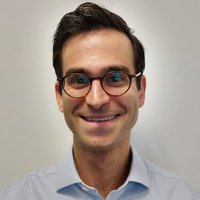
2023 Post-doctoral Clinical Fellowship
Using wake slow waves to decrease the risk of seizures
I have a PhD in neuroscience from the Lemanic Neuroscience Doctoral School (Geneva, Switzerland) and an MD from the University of Geneva. My training has focused on clinical neurology, epilepsy, and sleep medicine at the University Hospitals of Geneva. I am particularly interested in understanding the relationship between epilepsy and sleep, specifically how mechanisms related to sleep can either promote or prevent seizures. If we can control these mechanisms, it could be a powerful tool in our efforts to find a cure for epilepsy.
During sleep, there are slow waves of nerve cell activity that are known to have restorative function, helping to control the excitability of neurons. However, it is not clear whether this beneficial mechanism also applies to brain diseases like epilepsy, which are characterized by excessive nerve cell activity. Recently, I made an important discovery that slow waves, similar to those observed during sleep, also occur during wakefulness in patients with focal epilepsy. Building on this discovery and taking advantage of the protective function of slow waves, I am taking the next step in my current study to investigate whether artificially enhancing these slow waves can reduce epileptic activity.
In addition, we will be using recordings from electrodes in the brain to gain a better understanding of the fundamental mechanisms underlying the expected positive impact of slow waves during wakefulness on epileptic activities. By investigating these mechanisms, we hope to gain valuable insights that can contribute to the development of new approaches for managing epilepsy.
Follow up after fellowship:
Laurent has been appointed as Associated Editor at Brain Communications.